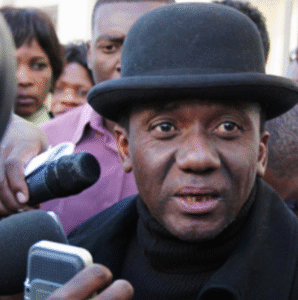BIDEN ADMINISTRATION TIGHTENS NOOSE ON ZIMBABWE’S TOP BRASS FOR HUMAN RIGHTS AND CORRUPTION ABUSES

In a decisive shift towards combating human rights abuses and corruption, President Joe Biden has intensified the focus of U.S. sanctions against Zimbabwe. The spotlight is now on President Emmerson Mnangagwa, his wife Auxillia, Vice-President Constantino Chiwenga, business mogul Kudakwashe Tagwirei, and a group of seven additional individuals, along with three entities. This move, rooted in the principles of the Executive Order 13818, which itself expands on the Global Magnitsky Human Rights Accountability Act, is a firm response to their roles in severe corruption or human rights violations.
This fresh wave of sanctions underscores a broader strategy of the United States to ensure accountability and fight corruption and abuse in a precise and thoughtful manner. It marks a significant shift from the previous sanctions program initiated in March 2003 and amended through subsequent orders, aiming at a more focused and effective approach to promote human rights and anti-corruption efforts.
The U.S. government has also paused its participation in the African Development Bank Dialogue and introduced a new visa restriction policy targeting individuals undermining democracy in Zimbabwe. These steps are in line with the termination of the longstanding sanctions program, signaling a renewed commitment to use the Global Magnitsky sanctions framework as a tool for targeting key figures involved in undermining the principles of democracy and human rights.
In a revealing statement, the U.S. administration outlined the critical situation in Zimbabwe, highlighting the “gross abuses of political, economic, and human rights.” It pointed to the suppression of civil society, severe limitations on political activities, and the misappropriation of public funds by government leaders for personal gain. These actions not only impoverish the Zimbabwean people but also fuel a global network involved in bribery, smuggling, and money laundering, affecting communities across southern Africa and beyond.
By employing the Global Magnitsky sanctions program, the United States is taking a stand against the egregious behavior of Zimbabwe’s most powerful figures. The sanctions are not aimed at the Zimbabwean public but rather at the individuals and entities directly responsible for exploitation and corruption. The move is part of a broader U.S. strategy to support civil society, human rights defenders, and independent media in promoting democratic values in line with the Zimbabwe Democracy and Economic Recovery Act of 2001.
The Biden administration’s actions signal a robust effort to work alongside the people of Zimbabwe in their fight for democratic freedoms and good governance. By holding accountable those who deny Zimbabweans their rightful democratic freedoms, the United States reaffirms its commitment to justice, human rights, and the global fight against corruption.




